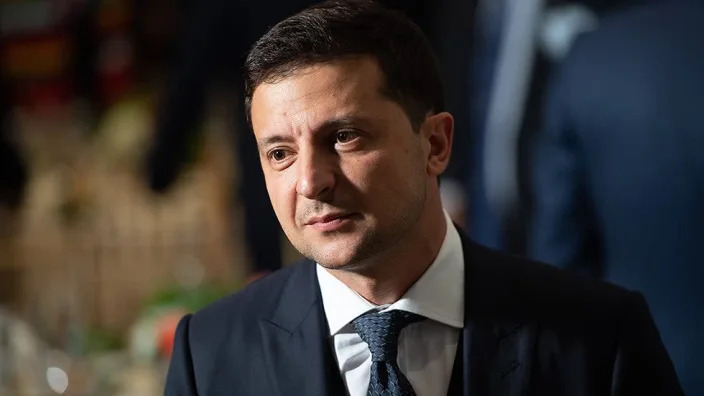USA Today
Poor planning, low troop morale and a fierce Ukrainian resistance. Why Russia is getting bogged down
Tom Vanden Brook – February 28, 2022
WASHINGTON – Russia’s invasion of Ukraine, in its fifth day Monday, has been stymied by a fierce, creative resistance and apparently poor planning by the Russian military, U.S. Defense officials and experts say.
The combination has left the Russian force charged with assaulting Kyiv about 15 miles from the capital city’s center, according to a senior Defense Department official. That force entered Ukraine from Belarus shortly after the war started.
Meanwhile, some Russian combat vehicles have been abandoned, out of fuel, while others have been reduced to smoking husks by Ukrainian attacks. And the Russians, despite a vastly better air force, have not achieved control of Ukraine’s air space.
Experts attribute some of the missteps to hubris inside Russian President Vladimir Putin’s military leadership. They failed to bring along enough supplies, assuming quick capitulation by Ukrainian forces and speedy collapse of the government in Kyiv. Other issues dogging the Russians: an operation spread too thin, poor equipment and low morale among the troops.
“They planned their logistics on a blitzkrieg,” said James Townsend, an adjunct senior fellow in the Center for a New American Security’s Transatlantic Security Program, referring to the concept of overwhelming an adversary quickly with superior force.
“When they started getting bogged down, they started running into logistics problems,” Townsend said. “They’ve got a long logistics tail. Fuel has been a bit of a big deal and that makes them targets for Ukrainian soldiers going in there with anti-tank weapons.”
Zelenskyy government:What happens if Kyiv falls? What would a government in exile look like?
The Defense official, who was not authorized to speak publicly about intelligence assessments, said Russian vehicles have been running out of gas. According to Pentagon assessments, the Russians either didn’t anticipate their re-supply problems or their troops are failing to execute the war plan properly.
The Ukrainian fighters have ambushed Russian convoys and destroyed a key bridge that slowed the Russian advance, the official said.

However, the Russians are expected to adjust, the official said. They still have significant advantages in weaponry. And there are indications the Russians plan to lay siege to Ukrainian cites, surrounding them and possibly firing rockets with poor accuracy into city centers.
That is an urgent concern, the official said, because of the potential for civilian casualties and devastating damage to infrastructure.
Retired Gen. Peter Chiarelli, who served as the Army’s vice chief of staff and spent several years in Iraq, praised the leadership of Ukrainian President Volodymyr Zelenskyy and the tenacity of the Ukrainian resistance.
‘Erratic’? ‘Delusional’?: Lawmakers question Putin’s stability as he puts nuclear forces on alert

Chiarelli said the Russians made a major tactical mistake by dividing their forces along three main routes of attack. Doing so, Chiarelli said, requires three separate efforts to supply its troops.
“I really fault the initial plan of this,” Chiarelli said. “It’s war on seemingly all fronts, rather than a main effort to capture Kyiv and then move on to some some other objectives. It doesn’t seem they have the ability to be able to do that. It’s extremely difficult when you have so many different locations to support your your soldiers.”
At least some of the Russian military equipment, despite years of investment by Putin, appears to be second-rate, Townsend said. It appears that shoulder-fired Javelin anti-armor missiles supplied to Ukrainian forces have destroyed a number of Russian vehicles.
“Some of their older vehicles didn’t look very upgraded to me,” Townsend said. “Our assumptions about the Russian equipment wears off in the sense that while some that is more modern, not all of it is.”
The longer the war grinds on, morale among Russian troops will likely erode, Chiarelli said. He noted that the Russian build up of more than 150,000 troops on Ukraine’s borders was underway for months before the invasion began, leaving some forces in the field during harsh winter weather.

The mood among troops could get worse. Urban combat in Kyiv, against a motivated and well-armed population, could lead to many deaths and injuries among Russian troops. If the Russian military can’t evacuate casualties quickly, morale will plummet, he said.
“There is nothing that will impact the morale of the force more than taking casualties and not seeing those casualties taken care of,” Chiarelli said.
“Believe me, if they move into the urban areas, they’re going to take a lot of casualties,” he added. “Not all (are) going to be deaths. There are going to be wounded. Arms, legs blown off.”
An even worse outcome, Chiarelli fears, is that Russian forces will opt instead to encircle Kyiv and other cities and lay siege to them, a brutal tactic the Germans used against the Soviet Union in World War II.

“If their casualties are too great, one thing that they could do is back off, surround the city and cut it off,” Chiarelli said. “The Germans tried to do that to many cities in the Soviet Union. Starve them and shoot rockets and artillery in the city.”
That makes it imperative for the U.S. and European allies to speed supplies to Ukraine in coming days, Chiarelli said.
“Humanitarian supplies and ensuring that as much of that as possible gets into the city, so people have food and the basic essentials they need to live, is critical,” he said.






